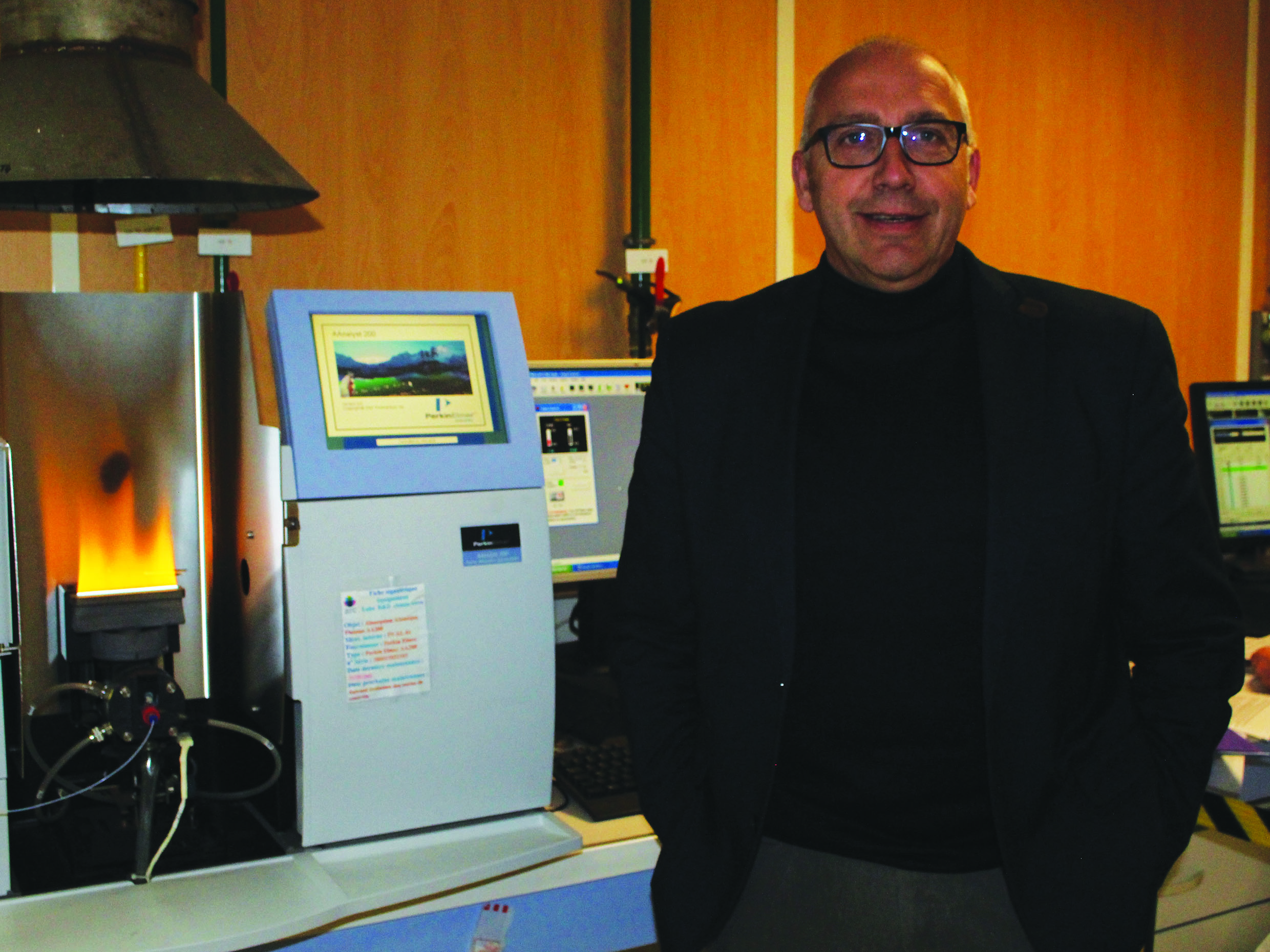Recognised throughout the world as a pioneer in the development of household glassware production technology, Arc was founded in 1825 in northern France. The town of Arques is still home to the group’s head office, its Research and Development Division and what is described as the world’s largest glass production plant. Today, the group also operates production sites in China, Russia, the United Arab Emirates and the USA. Through its six brands (Luminarc, Arcoroc, Chef&Sommelier, Arcopal, Eclat and Cristal d’Arques Paris), the business aims to make beauty and elegance affordable for everyone.
Chemistry focus
Raised in northern France, Sebastien Donze received a chemistry masters from the University of Lille, before studying for his PhD in chemical process engineering at the Compiègne University of Technology. After completing his studies, Mr Donze joined Arc Group in 2000, spending his first 18 months at the soda-lime production plant as a Production Shift Manager to learn the production methods and organisation. He transferred to the R&D team in 2002 as R&D Project Manager, becoming R&D Manager for decoration and surface treatment applications in 2007, before his appointment as R&D Director for Arc Group in 2014.
Having been a member of the International Crystal Federation Technical Committee from 2002 to 2007, Sebastien Donze is currently a member of the GlassTrend Advisory Board, a member of Board of ‘Matikem’ (previously ‘Euramaterials’) and a member of the USTV Board. He was attracted to a glass industry career by the possibilities provided to explore the scientific nature of glass materials, their inorganic chemistry and structural characteristics, as well as investigating the structure/properties of glass. The diversity of technical challenges posed by the glassmaking process and the expertise required to produce everyday glass items were equally appealing. In addition, the passion and commitment exhibited by fellow Arc employees has been an important and ongoing motivation.
As R&D Director, Mr Donze defines and co-ordinates the Arc Group’s research and development strategy, including the preparation of an R&D road map that has to be submitted to the Executive Committee for approval and adoption. His responsibilities embrace the management of all R&D activities, associated budgets and intellectual property rights. This includes the establishment of KPIs and R&D processes for the management of projects, alongside the management of French and European academic and industrial research partnerships, including those in place with CEA, CNRS, CelSian, SSV, glass producers and universities.
“Among the most rewarding aspects of this job are to witness new processes being successfully implemented at the plant and new products introduced that contribute to business growth” Sebastian Donze explains. “In addition, it is satisfying to create a team spirit around an R&D project thanks to the contribution of several people from within the company (combining skills from R&D, study offices and production plants with those from quality, new product development and marketing departments etc) and to support the project team to reach the industrialisation stage.”
The greatest challenges faced include accelerating the R&D process from initial trials in the laboratory to industrial validation in order to meet market and industry expectations and to estimate accurately the industrialisation conditions of a new process or product. During his tenure, many successful projects have been undertaken and implemented, however. This includes the development, industrialisation and launch of new glass materials; ‘Krysta’ crystalline glass in 2017, ‘Smartcuisine’ cookware opal glass in 2018 and coloured opal glass, also in 2018.
Separately, an innovative approach to glass melting was successfully investigated, patented and implemented on an industrial scale at Arc France in 2017/2018. This process reduces energy consumption and CO2 emissions, while increasing furnace flexibility (either increasing daily pull rate or extending lifetime).
Delivering competitive advantages
The Research and Development Department in Arques employs approximately 60 specialists and supports the group’s differentiation strategy by providing competitive advantages in terms of products and processes. The department’s main objectives are the industrialisation of innovative products at costs that are acceptable to the market, the delivery of increased process flexibility/productivity and limiting the industry’s environmental impact thanks to reduced emissions and energy consumption.
Current priorities are to develop/re-enforce skills to model glass production processes, from melting and forming to tempering and decoration. “Our goal is to develop a predictive approach to new products/new process developments in order to accelerate and secure the innovation process” says Sebastien Donze.
Separately, the department is engaged in the collection, analysis and storage of key data from glass materials (chemical, structural, thermal and mechanical characteristics), as well as from processes and produced glass items via the implementation of sensors.
Furthermore, under Mr Donze’s management, R&D pilot prototypes are being developed for glass melting, forming, glass-metal contact investigations and tempering, in order to validate proof of concepts and to speed up steps towards industrial implementation.
Influential organisation
As an Advisory Board member at GlassTrend since 2017, Sebastien Donze is available to provide valuable advice to colleagues, counselling on the relevance of projects and routes to address practical issues. He contends that GlassTrend membership provides a valuable opportunity for glassmakers to be part of the wider industry community and become aware of recent technological developments. “It helps us to gain a wider perspective of the glass industry worldwide in terms of the evolution of regulations, customers expectations and requirements, while providing the possibility to join collaborative R&D projects” Mr Donze explains. “Co-operation between glass companies allows the adaptation of glass manufacture to meet market or regulatory requirements.”
GlassTrend is particularly influential in the advancement of glass melting processes, raw materials, emissions and energy optimisation. In addition, the organisation’s regular seminars and associated visits to research centres and plants are considered especially instructive and interesting.
“In the future, however, GlassTrend needs to concentrate on recruiting more new, international members, who will bring greater expertise to continue the excellent work on its international projects” Sebastien Donze concludes. “The organisation also needs to develop more intensive relationships with such industry organisations as FEVE and EDG to gain additional input and direction for future GlassTrend initiatives.”


